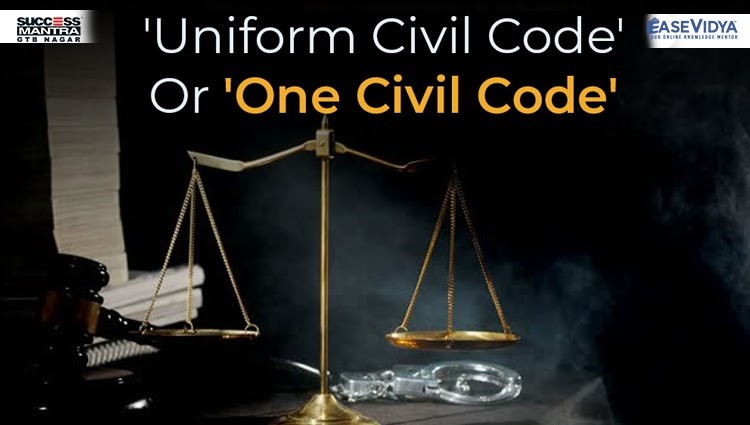
Uniform Civil Code
Uniform Civil Code
What's the current issue?
The Hijab row started in December end when a few students started coming to a government pre-university college in Udupi wearing Hijab. To protest against it, some Hindu students turned up wearing saffron scarves.
Background
Whereas the founders of the Constitution in Article 44 in Part IV dealing with the Directive Principles of State Policy had hoped and expected that the State shall endeavour to secure for the citizens a Uniform Civil Code throughout the territories of India.
Meaning
A generic set of governing laws for every citizen without taking into consideration the religion.
What the constitution says?
Article 44 says that there should be a Uniform Civil Code. According to this article, “The State shall endeavour to secure for the citizens a uniform civil code throughout the territory of India”. Since the Directive Principles are only guidelines, it is not mandatory to use them.
India needs a Uniform Civil Code for the following reasons:
- A secular republic needs a common law for all citizens rather than differentiated rules based on religious practises.
- Gender justice: The rights of women are usually limited under religious law, be it Hindu or Muslim. Many practises governed by religious tradition are at odds with the fundamental rights guaranteed in the Indian Constitution.
- Courts have also often said in their judgements that the government should move towards a uniform civil code including the judgement in the Shah Bano case.
Concern
- Secularism cannot contradict the plurality prevalent in the country.
- Cultural diversity cannot be compromised to the extent that our urge for uniformity itself becomes a reason for threat to the territorial integrity of the nation.













0 Comment